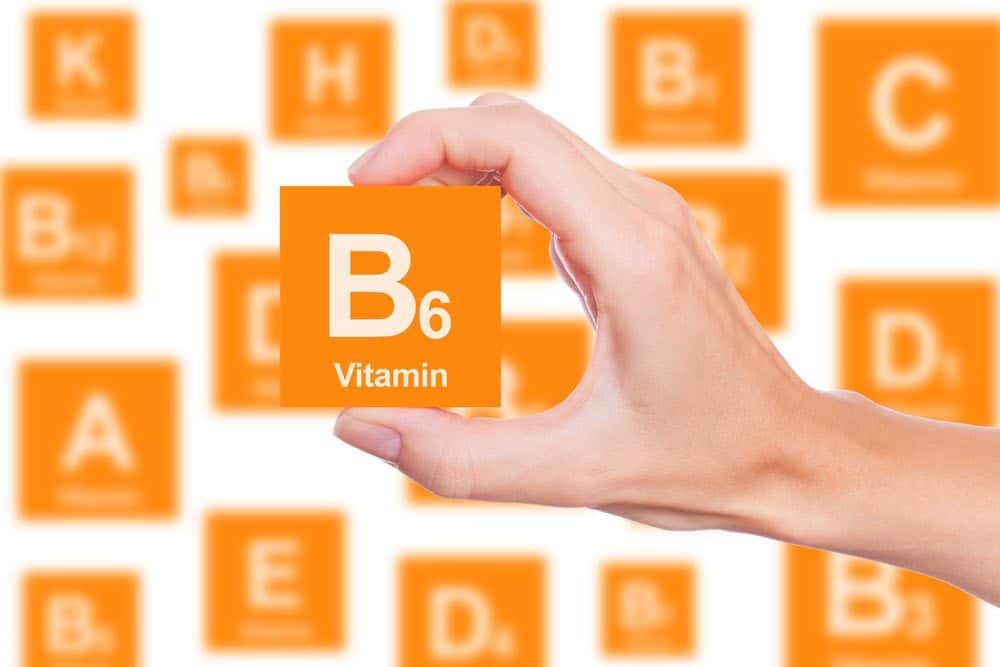

There are a group of B vitamins, of which B6 is just one. Collectively, they work together to help your body garner energy from the foods you eat and convert it into energy your body can use.
On its own, each of the B vitamins also has its own role to play in your health. Vitamin B6 is no exception and is one that you want to be sure you are getting adequate amounts of for a variety of reasons. If you wonder what your levels are, ask your doctor to do a simple blood test to check. The results will tell you if you need more or if you are where you should be. In the meantime, learning more about vitamin B6 can help you keep track of your intake. Read through this information and you should be ready to master your vitamin B6 levels.
Vitamin B6 Responsibilities
Vitamin B6, which also goes by the name of pyridoxine, has a wealth of roles in your body. It’s a water soluble nutrient that can be found in foods and supplements, making it easier to get your daily intake. One of the biggest jobs that Vitamin B6 performs is the production of the hormones, serotonin and norepinephrine, according to the Mayo Clinic. These hormones are produced by the brain and aid in mood and proper transmission of signals within your brain and body. This vitamin also helps promote the production of myelin, which is a protection layer that surrounds your nerves. Vitamin B6 also works to balance red blood cells and boost immunity, helping ward off heart disease. Additionally, as mentioned above, B6 aids in the conversion of foods into glucose so that your body can use it for energy.
The Role Of B6 In Your Health
Research shows that vitamin B6 plays a role in preventing certain health conditions or encouraging continued health. Some studies have shown that a daily dose of vitamin B6 can help pregnant women ward off morning sickness. Additionally, a daily dose of vitamin B6 may also aid in keeping macular degeneration, a scary eye disease that can lead to blindness, from developing. Because vitamin B6 also balances serotonin levels, it can be a powerful tool for treating and preventing the symptoms of depression.
There are a variety of other health issues that B6 may be able to control, treat or prevent. These include premenstrual syndrome, rheumatoid arthritis and tardive dyskinesia, say the experts at the University of Maryland Medical Center. If you have any of these illnesses or health problems, talk to your doctor about whether B6 in your diet, or through a supplement, can help. Of course, you should never self-treat and should always follow a doctor’s advice regarding how much B6 to take and what other treatment methods it should be combined with.
Symptoms Of A Deficiency
Although experts say that a deficiency in vitamin B6 is rare in the United States and other developed countries, it does happen from time to time. If you ever have the symptoms of a vitamin B6 deficiency, it’s always a good idea to speak to your doctor. Because the symptoms are also those that go with other health conditions, they should never be ignored. Fortunately, if your doctor discovers that you are low in vitamin B6, it’s a pretty simple fix to get you where you need to be. Signs that you need to boost your vitamin B6 intake include muscle weakness, irritability, nervousness, difficulty with focus, short-term memory loss and depression, according to the University of Maryland Medical Center. If you experience any of these issues, it’s important to call your doctor to be sure you don’t need to be seen.
Too Much Vitamin B6
While there are generally no risks of getting too much vitamin B6, the Office of Dietary Supplements reports that taking too much pyridoxine in supplement form can cause health issues, including birth defects, ataxia, painful skin issues, digestive disturbances, heartburn, nausea and neurological problems. If you feel like you may not be getting enough vitamin B6 in your diet, discuss an appropriate amount with your doctor before supplementing to prevent concerns over issues such as these.
Daily Intake Recommendations
The amount of vitamin B6 a person needs is dependent on age and gender. Knowing how much you need is important for assessing your intake to determine if you need to add some to your meal plans. According to the Office of Dietary Supplements, the average adult woman needs 1.3 to 1.5 milligrams of vitamin B6 on a daily basis while adult males should be getting 1.3 to 1.7 milligrams each day. Women who are pregnant should boost their daily B6 intake to 1.9 milligrams, and breastfeeding requires two milligrams of vitamin B6 on a daily basis. Once you have a look at your diet, you should be able to tell if you might not be getting enough vitamin B6 through your diet.
What Foods Contain Vitamin B6?
Fortunately, for most people, eating a well-balanced and varied diet is usually enough to ensure that you are getting enough of the nutrient in your meal plan. According to the Office of Dietary Supplements, your best sources of vitamin B6 include chickpeas, beef liver, tuna, salmon, chicken and fortified breakfast cereals. Shrimp, milk, cheese, potatoes, bananas, lentils, beans, spinach, carrots, brown rice, bulgur, squash, rice, tofu, sunflowers and whole grain flour are other foods that contribute to your daily vitamin B6 intake. As you can see, including lots of different foods in your diet is an easy way to boost your vitamin B6 intake so you aren’t stuck eating the same things over and over again to be sure you are getting the amount that you need.
Getting Enough Vitamin B6
Health experts say that your best bet when it comes to getting enough vitamins and minerals, B6 included, is to eat a healthy and balanced diet. The more variety you eat, the more nutrients you get, helping cover your needs. This means eating a variety of fruits, vegetables, whole grains, low-fat dairy
and lean meats. Because foods in all of the food groups contain vitamin B6, you shouldn’t have any trouble meeting your needs, even if you have food allergies, intolerance’s or are a vegetarian or 
In addition to ensuring your dietary intake is enough, you can also get your daily recommended intakes of vitamin B6 by adding a supplement to your routine. It might be a vitamin B6 pill on its own, but it’s much more common to take a B complex supplement. You might also take a general multivitamin that contains your daily dose of vitamin B6. The upper intake level of B6 is 100 milligrams, so most people don’t have to worry that they are getting too much, even if they cover their needs with their meal plan and also take a supplement.

